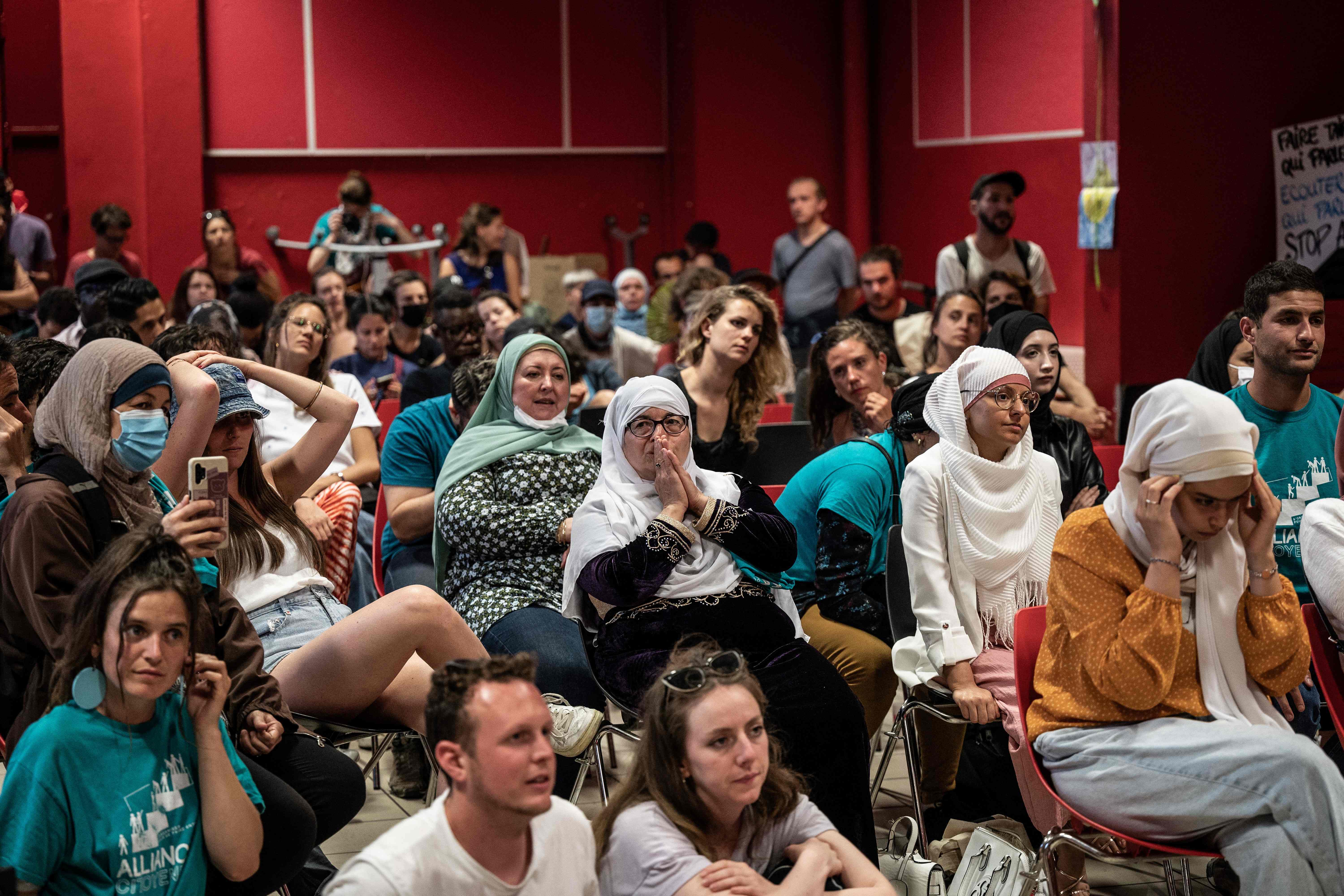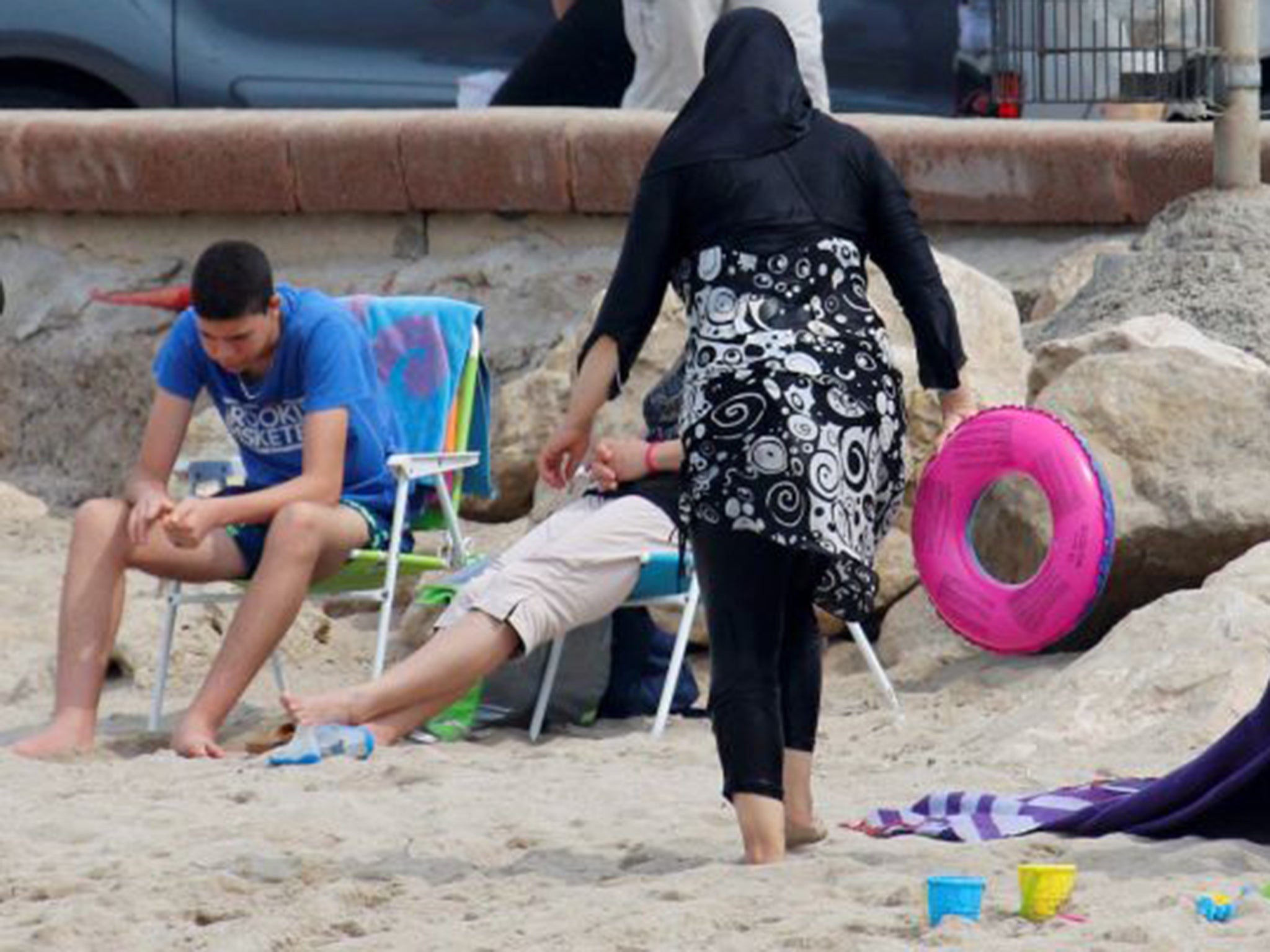French city of Grenoble allows wearing of ‘burkini’ in state-run swimming pools
Burkinis are swimming suits that covers whole body, except for face, hands and feet

Your support helps us to tell the story
From reproductive rights to climate change to Big Tech, The Independent is on the ground when the story is developing. Whether it's investigating the financials of Elon Musk's pro-Trump PAC or producing our latest documentary, 'The A Word', which shines a light on the American women fighting for reproductive rights, we know how important it is to parse out the facts from the messaging.
At such a critical moment in US history, we need reporters on the ground. Your donation allows us to keep sending journalists to speak to both sides of the story.
The Independent is trusted by Americans across the entire political spectrum. And unlike many other quality news outlets, we choose not to lock Americans out of our reporting and analysis with paywalls. We believe quality journalism should be available to everyone, paid for by those who can afford it.
Your support makes all the difference.The city of Grenoble in France voted on Monday to allow Muslim women to wear burkinis in state-run swimming pools.
The decision was adopted by the municipal council with a narrow majority of 29 votes for, 27 against and two abstentions, after a debate of two hours and 30 minutes, which became tense in parts, reported Ladepeche.
Burkinis, swimwear that combine a burqa and a bikini to become a swimming suit that covers the whole body, except for the face, hands and feet, has become a major point of contention in France in the recent years.
Mostly worn by Muslim women, burkinis have raised concerns of growing Islamisation in the country, and has been seen by many as a challenge to France’s secular identity.
In 2016, France’s highest administrative court ruled that “burkini bans” being enforced in the country’s beaches were illegal and a violation of fundamental liberties.
Grenoble mayor and the Green party politician Eric Piolle, who leads a broad left-wing coalition at the city council, dismissed objections of the opposition, which had included concerns about feminism, health and secularism.
He said nothing prohibits the wearing of religious clothing in public spaces, including at swimming pools.
Swimming pools in France are known to have strict outfit norms, including regulations of mandatory swimming caps and body-hugging, lycra outfits.

“Our wish is to get rid of absurd restrictions,” the mayor said, according to France 24. “This includes [allowing] bare breasts and swimming costumes that give extra coverage for sun protection or for beliefs. It is not about taking a position for or against the burkini specifically.”
Opposition leaders hit out at the mayor after the vote on Monday.
“By authorising the wearing of the burkini in municipal swimming pools, Eric Piolle definitively acts his break with secularism and the values of our Republic,” said Laurent Wauquiez, leader of the Republicans and president of Regional Council of Auvergne-Rhône-Alpes.
“Faced with this separatism and as I had promised, the Region immediately ceased all subsidies to the town hall of Grenoble.”
“It seems to me that [mayor Piolle] doesn’t realise the harm he is doing to our Republican values,” Prisca Thevenot, a spokesperson for president Emmanuel Macron’s party told Radio J on Monday.
“This would be breaking with the rules to respond to political desires based on religion,” she added.
Grenoble has seen protests since 2018. In 2019, the city closed two public swimming pools after seven Muslim women “inspired by Rosa Parks” defied a citywide ban to swim in their burkinis. The protest was part of a campaign dubbed Operation Burkini, launched by Grenoble’s Citizen Alliance.
In recent years, concerns have grown that France uses secularist ideals to target Muslims.
In 2004, a law banned the wearing of religious emblems in schools and colleges.
Paris also courted intense debate on religious clothing after it became the first European country to ban public use of the full-face veil in 2010, deeming it an affront to secular values.
Join our commenting forum
Join thought-provoking conversations, follow other Independent readers and see their replies
Comments